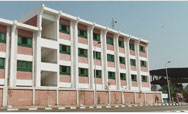 |
Development Assistance
|
($ in thousands)
|
Account | FY 2005 Enacted | FY 2006 Enacted | FY 2007 Request |
| DA | 1,448,320 | 1,508,760 | 1,282,000
|
|
The Development Assistance (DA) request reflects the President's commitment to promote economic opportunity, support just governance, and invest in people through education in transformational development countries -- needy countries with good economic and social policy performance. There are measurable goals and concrete benchmarks for achieving these objectives in each country. This request will make important contributions to: 1) economic growth, 2) democratic governance, 3) agricultural productivity and management of natural resources, and 4) investment in people by promoting access to quality education.
The Administration's FY 2007 DA request includes funding for these objectives in fragile and strategic states as well. This request would enhance stability, improve security, encourage reform and develop key institutions to ensure these states' lasting recovery. Funding is also requested for Global Issues and Special Concerns, including Presidential Initiatives, such as information technology, environmental protection and biodiversity.
DA will be used to support transformational development and fragile and strategic states in the following areas.
- Economic growth programs increase trade and investment by strengthening private markets, providing economic opportunity for the rural and urban poor, and supporting access to clean energy, environmentally sound urbanization, and micro enterprise development. This request promotes stronger linkages between trade and development by increasing the capacity of developing countries to participate in and benefit from trade and investment. Specific Presidential Initiatives include the Central America Free Trade Agreement (CAFTA), the Trade for African Development (TRADE) Initiative, and the Digital Freedom Initiative.
- Democratic governance programs support free and fair elections, encourage open and competitive political processes, promote the rule of law and respect for human rights, develop politically active civil societies, encourage anti-corruption reforms, promote more transparent and accountable government, combat trafficking in persons, and mitigate conflict. Democratic governments are more likely to observe international laws, stand firm with the United States in the War on Terrorism, and pursue policies to reduce poverty, hunger, and suffering.
- Agriculture and natural resources management programs strengthen agricultural productivity in developing countries, especially in South Asia and sub-Saharan Africa under the President's Initiative to End Hunger in Africa. Programs will mobilize science and technology to reduce poverty and hunger; develop global and local trade opportunities for farmers and rural industries; and promote sustainable agriculture and sound environmental management.
- Education programs include funding basic education activities that strengthen pre-primary, primary and secondary education, and teacher training. These investments in people are focused primarily in Africa and Latin America through two Presidential initiatives, Africa Education Initiative and the Centers for Excellence in Teacher Training. Education programs also include targeted work in South Asia and the Near East, which strongly emphasize the need to ensure equitable access for girls. DA will also fund programs for higher education that strengthen partnerships with the U.S. higher education community, and workforce training. Education is an important long-term investment in sustaining democracies, improving health, increasing per capita income and conserving the environment.
- In fragile states, USAID will pursue solutions to conflict and state failure, overcome short-term obstacles to peace, and provide technical assistance to address underlying causes that jeopardize a country's long-term development goals. The Agency's work in the areas of democracy and governance, as well as economic growth, will complement the conflict prevention and mitigation programming in that the legitimacy and effectiveness of political, economic, and social institutions are a critical factor in successfully ending conflict.
This DA request also supports global issues and special concerns that include programs that invest in, access to clean water and sanitation, renewable and clean energy, and conservation of biological diversity. USAID manages the following Presidential Initiatives that are key components of sustainable economic growth.
- The Congo Basin Forest Partnership Initiative promotes economic development, poverty alleviation, improved governance and natural resource management.
- The Clean Energy Initiative provides access to affordable, reliable, clean and efficient energy.
- The Global Climate Change Initiatives promotes economic growth that minimizes the increase in greenhouse gas emissions, helping to reduce the planet's vulnerability to climate change.
- The Initiative Against Illegal Logging is the most comprehensive strategy yet undertaken by any nation, reinforcing U.S. leadership in protecting the world's environment by stemming the flow of illegally-logged timber in markets. This initiative focuses on three critical regions - 1) the Congo Basin, 2) the Amazon Basin and Central America, and 3) South and Southeast Asia.
Back to Top ^
|


